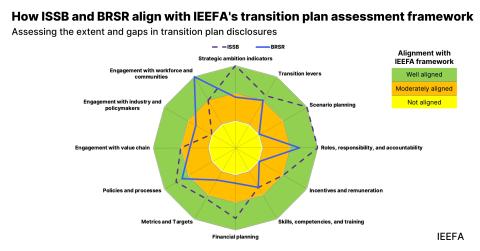ExxonMobil’s climate risk report defective and unresponsive
Download Full Report
Key Findings
ExxonMobil’s 2018 Energy and Carbon Summary, like its previous report, dismisses potential carbon impacts as unlikely, concluding that, even if demand falls or regulatory restrictions are enacted, neither will pose a material risk either to ExxonMobil’s reserve calculations or to its financial risk profile.
Shareholders, who assume that the global agreement to maintain global warming to less than 2 degrees Celsius might cause a reconsideration of ExxonMobil’s earlier conclusions of no risk, have every right to be critical of the substantive content of the report.
Executive Summary
ExxonMobil shareholders have waited for over 25 years for the company to articulate climate-change financial risks to its business. In the face of changes driven by technological advances and global climate change agreements, ExxonMobil shareholders have filed resolutions requesting disclosure reports on the impact of these changes on the company’s reserves and resources, and the associated financial risks.
In 2017, ExxonMobil agreed to publish the second of two company climate risk reports. The “2018 Energy and Carbon Summary,” which was released in February 2018 and is the subject of this memo, is defective and unresponsive to the shareholder resolution that prompted it. Shareholders should react with “no” votes on one or all of the company’s proposed board of directors.
Some background: In 2014, after two years of shareholder proposals asking ExxonMobil to assess its carbon asset risk, the company released its first carbon asset risk report. In that report, ExxonMobil concluded that climate change posed no risk to the company, relying in great part on its projection of increasing demand for energy in developing nations. In 2016, shareholders once again asked ExxonMobil to evaluate its carbon risk following the adoption of the Paris Agreement, signed by the vast majority of national governments, to limit warming to significantly less than 2 degrees Celsius above pre-industrial levels.
Shareholder resolutions filed in 2016 and 2017 specifically requested a disclosure report assessing the impact of a 2-degree scenario on the company’s reserves and resources—and the financial risk associated with such a scenario. Thirty-eight percent of ExxonMobil’s shareholders voted in favor of the shareholder resolution at the company’s 2016 annual board meeting. The following year, major proxy advisors Institutional Shareholder Services (ISS) and Glass Lewis both encouraged shareholders to support the resolution, and 62% voted for it. Yet ExxonMobil still would not agree to publish a report. It was only after the New York State Common Retirement Fund re-filed the resolution for a third consecutive year (filed in 2017 for the 2018 shareholder meeting) that ExxonMobil agreed, in December 2017, to publish a climate risk report. The New York State Common Retirement Fund then withdrew the resolution.
Please view full report PDF for references and sources.















